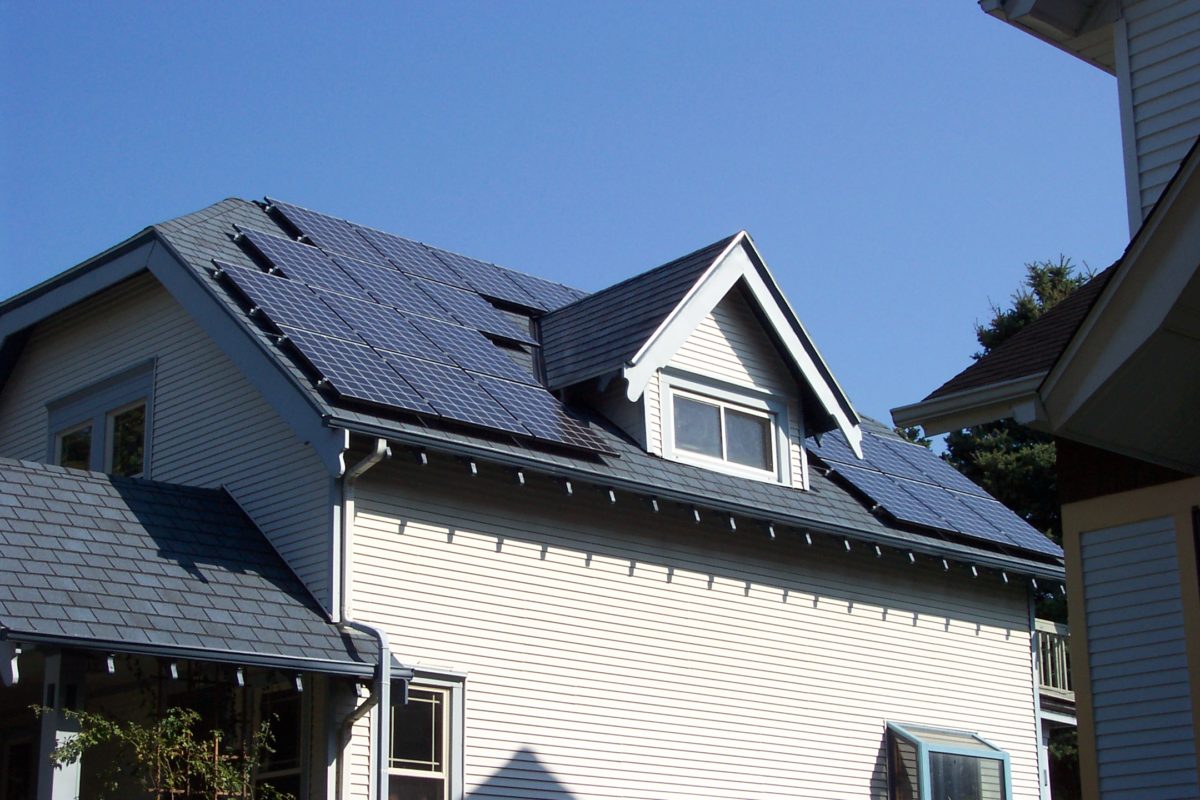The energy regulator of Belgium's Flemish-speaking macro-region of Flanders, VREG, reported last week that residential PV system owners that agreed to install smart meters and leave the net metering scheme were currently benefiting from a tariff for power injection of around €0.11/kWh.
“This tariff is about €0.08 higher than that paid to smart-metered prosumers at the beginning of the year,” Dirk Van Evercooren, managing director of Flemish renewable energy association Organisatie voor Duurzame Energie (ODE) Vlaanderen, told pv magazine.
According to him, PV system owners operating under the smart meter regime are not only benefiting from the rising injection tariffs, which are linked to the offtake price of electricity, but also – and more importantly — from the high value of the kilowatt-hours they self-consume. “This is because the price for electricity has risen to a staggering €0.39/kWh in November,” he said.
“Summing up these two gains and considering that high energy prices may stay at these levels for a while, the prosumers relying on smart meters may see the payback time of their installations more than halved compared to the numbers in January 2021,” he further explained, noting that the payback time of net-metered projects will also have declined over the same period, although less than that for smart-metered installations.
Prosumers under smart meters are receiving payments based on actual electricity usage and injection, while those that don’t have a digital meter and are still benefitting from net metering have no direct financial compensation for the injected electricity, but the financial equivalent of the injected kilowatt-hours is deducted from the household's electricity bill. “If the consumption of the net-metered prosumer is higher than PV power production, he will have to buy electricity from the grid at the normal rate,” Van Evercooren explained. “If the production is higher than consumption, he will get nothing for injecting power into the grid. His benefit, however, is still big, as all energy the PV system produces is substantially being treated as self-consumption.”
In theory, both prosumer categories are seeing big gains under the current high electricity prices scenario, but those of the PV system owners under smart meters are larger, as these were exempted from paying the grid fee introduced for residential prosumers by the Flemish authorities in 2015. “This fee was modeled to reflect a self-consumption level of about 28%, assuming that 72% of production is being injected and taken off within the same billing period,” he added. “Therefore, if you have a self-consumption rate higher than 28% and a digital meter, you don’t pay the prosumer tariff and therefore your business case can be better than the net metering case.”
Popular content
According to figures from Flemish grid operator Fluvius, more than 277,500 PV systems are using smart meters in Flanders — almost half of all PV systems installed in the region. Overall, around 1.1 million residential customers have opted for smart meters since a new regulation was introduced.
“These figures are remarkable, because the loss of the net-metering regime due to the court ruling on 14 January 2021 caused a massive rupture in the acceptance of the digital meter, even among non-prosumers,” Van Evercooren said, referring to a ruling of Belgium's constitutional court, which canceled the 15-year grace period granted to residential PV system owners to keep operating under net metering despite the arrival of smart meters. “Currently, there is a campaign running to demonstrate the benefits of the digital meter and the energy transition in general,” he added, stressing that the smart meter regime is profitable for PV system owners, especially for those households with a high self-consumption rate.
Most of Flanders' installed PV capacity is represented by PV systems not exceeding 10 kW in size installed under a green certificate scheme which expired in 2014, or under the net metering regime.
Each of Belgium’s three macro-regions, including Wallonia and Brussels, has its own regulatory framework for solar and renewable energy. The country has the potential to reach 18 GW of solar capacity by 2040, according to a late-2017 report by grid operator Elia.
This content is protected by copyright and may not be reused. If you want to cooperate with us and would like to reuse some of our content, please contact: editors@pv-magazine.com.



1 comment
By submitting this form you agree to pv magazine using your data for the purposes of publishing your comment.
Your personal data will only be disclosed or otherwise transmitted to third parties for the purposes of spam filtering or if this is necessary for technical maintenance of the website. Any other transfer to third parties will not take place unless this is justified on the basis of applicable data protection regulations or if pv magazine is legally obliged to do so.
You may revoke this consent at any time with effect for the future, in which case your personal data will be deleted immediately. Otherwise, your data will be deleted if pv magazine has processed your request or the purpose of data storage is fulfilled.
Further information on data privacy can be found in our Data Protection Policy.